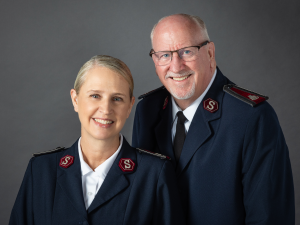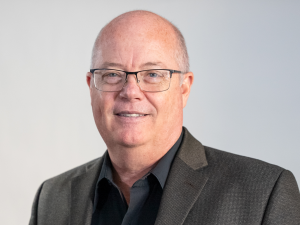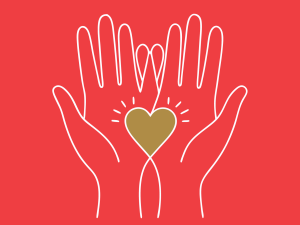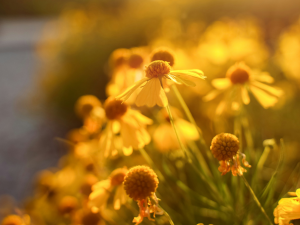If you know me at all, you probably know a few basics. For example, I have an unquenchable love for Haribo gummy bears, and can name the color on blind taste tests every time. I’m an uncontrollable organizer, and while I live a mile from the beach I’m really a mountain girl at heart. I’m passionate about story and the way it connects us all. And I love to host gatherings.
There’s something about bringing people together and the experience and feelings you can create in doing so that gives me energy. And the planning process is all part of the fun.
The latter probably has to do with the way I grew up. My family loves to celebrate—pretty much any reason to gather everyone together is a good one. We simply believe there’s no accomplishment too small or too big to throw a party. After all, if we don’t celebrate each other, who will?
It’s probably no surprise then, that one of my favorite books is “The Art of Gathering: How We Meet and Why it Matters,” by Priya Parker. She writes that any gathering is an opportunity to create a temporary world—one where people share themselves and face the things we all typically avoid. She gives plenty of practical advice on gathering with specific purpose, with a specific audience and a thoughtful format that reflects that purpose.
I know my family is not alone in our love of gathering. Getting together is part of who we are as people; our connections are critical.
And then the coronavirus pandemic launched a full-on assault on gathering—from weddings to birthdays, graduations and dinner parties. That underlying tenet of gathering together was replaced seemingly overnight by social distancing.
Parker says we’re in “a gathering recession.” But, as she wrote, “it doesn’t have to turn into a loneliness boom.” “This heavy time could be leavened by the new rituals it created. The unlikely intimacies it fostered and the ways in which it revealed that convening people is a special privilege that ought never to be taken for granted.
It’s an opportunity to experiment—albeit an ongoing experiment—to focus not on the cutlery and centerpiece, but rather on “creating magic among people.”
And you’ve seen the displays: the collective banging on pots and pans in cities from New York to Los Angeles to thank frontline medical workers. The drive-by parades of teachers visiting their students. And yes, Zoom parties left and right.
In March, before we were all a little tired of Zoom, I hosted an 18-person Zoom birthday party and soon after, a Zoom class meet up for 2 year olds.
I took Parker’s suggestion of a virtual “Seven Songs Salon,” where each guest gets an evening to digitally share and play aloud the seven songs that have most shaped them. Instead, I collected the selections of my extended family members and sent out a playlist for all to listen to and then guess its owner.
I asked for the songs that have most shaped each individual, from earliest memories to the present day, the ones that bring them to a specific point in time, that are formative, painful, beautiful or in any way part of their life. Hearing the song my mom played on repeat in high school or that my cousin, a new high school graduate, loves right now gave me a new window into who they are in a way entirely different than if we had gathered like normal.
I hope it did create a little magic, and yet it still can’t quite replace gathering in person. There’s still a distance.
We’ve all felt varying levels of tension this year, that underlying nagging sensation that things are just off. And maybe it somehow is the year we need—to reset, to reconsider…to make sure we don’t take those privileges for granted when we meet again.
This season of The Do Gooders Podcast is meant especially for that—to consider this time of refining we find ourselves in and how we can best evolve.
Because as Krysta Masciale shares, “In a crisis, you get to choose: replicate or evolve.” She offers the critical questions to ask in the “slow-paced middle ground of refining”—questions we can ask about who we are and who we need to become if we’re to evolve.
And in the process, the anxiety and fear that we feel is natural, Dr. Jack Anderson shares. It’s calmness that has to be learned. We can learn to cope with stress in healthy ways so that our ship-like integrity will not crack, and he offers strategies to get started.
David Jones found a way to cope with the stress of the pandemic through volunteering. After being laid off from his job at a catering company, he began making lunch for 100 seniors a day with The Salvation Army. He took what he loved to do—cooking—and got involved in doing good.
Living with purpose is key in embracing what’s uncomfortable, Dr. Deb Gorton shares. If every decision involves a loss and a gain, are you pausing to consider what that loss might be in your daily decisions—and whether or not it is in line with your purpose? Beyond setting goals or deciding on a profession, have you defined your purpose? We’re hardwired to seek comfort, you’ll hear, but comfort usually doesn’t move us in the right direction.
Living in our purpose necessitates a community, and as Lt. Paul Chisholm shares, someone to disciple you. An ordained minister of the gospel and newly commissioned Salvation Army officer, his story is one of transformation—of making the choice to do things differently, to evolve. He’ll share why he knows firsthand that discipleship—relationship—makes all the difference, and why there is always hope to be found if you pick up a Bible.
That need for a faith community is more relevant than ever, Tim Soerens shares. But we must be willing to question our default settings in how we pay attention to God at work in our lives and how we come together to be the visible body of Christ for our neighbors.
And right at home, how do we successfully stay in love, raise a healthy family and do meaningful work? André and Jeff Shinabarger will share the latest research for modern couples who want it all and practical ways to lessen the strain between love and work—especially in this new 2020 context.
Whether a pandemic or any other crisis we might face, the Beatitudes, Jonathan Dodson shares are a “training in goodness.” The wisdom can center us and the promises of the Beatitudes can help provide “humble reflection” to overcome the moral chaos of today.
This year, especially, as we seek to process so much—what’s good, are we safe and secure, and more—if our chief interest is self-preservation, how then can we engage in holding others’ interests? As Ashlee Eiland shares, extending radical kindness toward every person—regardless of social status, political views or religious beliefs—gives each person hope and rekindles a common humanity and dignity.
We might not be gathering in the way we all know and love, but that slower paced lingering that has resulted from “safer at home” policies means we’re not rushing between meetings and activities. Instead, we have the chance to sit on the porch or take a walk and get to know our neighbors. To get to know the stories behind someone else’s perspective.
As we move a little slower, as we reconsider our own purpose, talk to those around us and learn to embrace calmness, we have the chance to refine how we live and what we “go back to.” I hope you’ll listen in this season and find a way to evolve in your own way, too.
Listen in this season on The Do Gooders Podcast—The Refining:
57 Will you replicate or evolve in crisis with Krysta Masciale
58 How to cope with anxiety and find calm with Dr. Jack Anderson
59 How to do what you love as a Salvation Army volunteer with David Jones
60 Practical skills to pursue and live in your purpose with Dr. Deb Gorton
61 Making the choice to transform with Lt. Paul Chisholm
62 The key to discovering the Church right where you are with Tim Soerens
63 How to lessen the strain between love and work with André and Jeff Shinabarger
64 What the promises of the Beatitudes mean for today with Jonathan Dodson
65 How to restore dignity through kindness with Ashlee Eiland
Do Good:
- Are you a Do Gooder, someone who cares about bringing goodness into the life of your family and community? Subscribe to The Do Gooders Podcast with Christin Thieme to be inspired by those doing good and find tangible tips for simple actions you can take today.
- See how you can get involved in the Fight for Good at westernusa.salvationarmy.org.
- Did you know The Salvation Army served more than 23 million Americans last year fighting hunger, homelessness, substance abuse and more—all in a fight for good? Where can you help? Take our quiz to find your cause and learn how you can join in today.












Comments are closed.